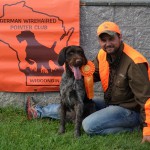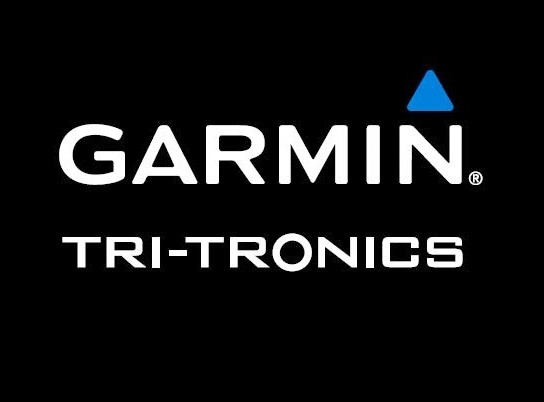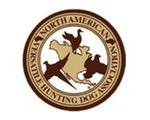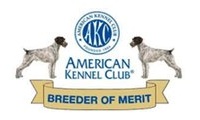Find A Breeder
What do YOU want?
This is the most important part of your search! There is so much variance in the breed, you need to be specific in your needs and wants. Do you want to compete in shows and/or field trials, will your puppy be a family companion and personal gun dog? Just because your friend’s GWP is the best hunting dog you’ve ever seen, doesn’t mean buying the next available and/or cheapest GWP you can find, will be anything like your buddy’s dog.
Do you want to hunt upland and/or waterfowl? Some lines are more ideal to handle the thick cover in grouse woods vs the dog needed to cover wide open chukar hills. A GWP for waterfowl is even more specific, the dog needs a thick, dense coat that completely covers the body (including belly) and that properly insulates and repels water. It should be from a breeder that is known for GWPs with good water work, just because they swim, does not mean they innately retrieve or have the desire to search for a downed duck.
If you want a GWP for hunting, then buy from a breeder that hunts! We cannot stress this enough, and get many  phone calls and emails from people inquiring for a puppy that will hunt, because their previous one wouldn’t or was gun shy. And be well aware that websites can be full of false advertising; pictures of dogs on point and dogs with hunting titles, does not mean the dog has ever actually ‘hunted’. On the same topic, there are also dogs that don’t have hunting titles, that do hunt. The best way to find out is to actually see the sire and dam hunt. A breeder proud to promote their working lines are usually eager to showcase that ability.
phone calls and emails from people inquiring for a puppy that will hunt, because their previous one wouldn’t or was gun shy. And be well aware that websites can be full of false advertising; pictures of dogs on point and dogs with hunting titles, does not mean the dog has ever actually ‘hunted’. On the same topic, there are also dogs that don’t have hunting titles, that do hunt. The best way to find out is to actually see the sire and dam hunt. A breeder proud to promote their working lines are usually eager to showcase that ability.
Ask breeders:
- Do you hunt with your dogs? Is this planted birds at a game farm, or wild birds in their natural habitat?
- How many wild birds, and what kind, do your dogs hunt?
- Do you prefer one dog over another for upland or waterfowl?
- Is your line stronger in Pointing or Tracking?
- Do you own a hunting license?
If you’re looking for hunting companion, you should know the importance to these questions. If your breeder has never actually hunted their dogs on wild birds, how are they able to advertise and vouche for their ability? More importantly, how will they be able to mentor you in anything hunting related if they’ve never done it? Do you want a dog you can hunt test or field trial? If so, has the breeder trained and tested to those levels to be able to mentor you to accomplish that? If they’ve never done it themselves, how do they know if the pup they sell you would have the potential to accomplish it?
Even advanced hunting titles on a dog, are no substitute for real hunting experience and their ability on wild birds.
Always visit the breeder and meet the dogs before you commit to a puppy
It’s easy to go look at a litter of pups and get caught up in the moment of “I love this puppy, I want this puppy”, even  more so when they’re kept in bad conditions because people think they’re ‘saving’ them if they buy the pup. A responsible breeder will want to meet you before they send one of their puppies home with you. Do this before the breeding even occurs so you can evaluate the dogs for temperament, coat quality, and determine if their hunting style is what you’re looking for.
more so when they’re kept in bad conditions because people think they’re ‘saving’ them if they buy the pup. A responsible breeder will want to meet you before they send one of their puppies home with you. Do this before the breeding even occurs so you can evaluate the dogs for temperament, coat quality, and determine if their hunting style is what you’re looking for.
During this time you can also see how the breeder’s dogs are kept and taken care of, as well as meet their other dogs. Most likely their other dogs will be related to your potential puppy, so will look and act similar. Are the dogs happy to greet you, sitting away reserved, or lunging and barking at you? This is also a great time to ask the breeder more questions and determine if you feel they would be a helpful mentor to you.
What to expect in your search for a puppy
It is usual to have different ‘types’ of GWPs, although they are still considered purebred. Different lines produce different types. For example, some lines produce bigger dogs, some produce smaller and lighter dogs, some produce dogs with are longer in coat with profuse furnishings, and others are shorter in coat with few furnishings. Some are bred with characteristics to run big and be competitive in a horseback field trial, while others are bred to hunt close. Best advice is to go and see as many GWPs as you can, before you decide where you are going to purchase your puppy.
Most reputable breeders will have an established waiting list, be patient in finding the right breeder, and the right mating. This will be a 10+ year commitment, it’s worth waiting for!
How do I find a responsible breeder and what health issues should I ask about?
The GWPCA Breeder Referral is a listing of GWP breeders located through out the U.S. Some have hot links to their individual websites and those that don’t have other contact information. While the Parent Club offers this service it is important to note this is not to be considered an endorsement, guarantee, recommendation or approval. It is the Breeder’s responsibility when it comes to the health, temperament and advertised attributes of the puppies and dogs offered for sale.
At a minimum breeding stock should be certified against hip dysplasia by the Orthopedic Foundation for Animals (OFA) with a ranking of at least good or excellent. GWPs rank 112th in hip dysplasia with only 8.9% of the Xrays submitted classified as dysplastic. This data is skewed by the probability that most bad Xrays are never submitted to the OFA, which makes the certification all that much more important. One of the main health concerns in GWPs is Thyroid, being the 11th most common breed with an abnormal thyroid (76.2% normal). Thyroid is not a health test to compromise on, as your dog will need medication for life and affect it mentally and physically. Breeders are also starting to screen elbow joints with few problems found in GWPs (97.3% checking clear). Some will also test eyes and cardiac.
If you have the sire and dam’s AKC registered name or number, you can search public records on OFA to see if they’ve been health tested. GWP breeders dedicated to producing healthy dogs, will have their breeding dog’s in the CHIC database; which means they’ve completed all the health testing recommended by the GWPCA including hips, elbows, thyroid, cardiac, and eyes.
It helps to know the health not only of the sire and dam of a litter, but also of their parents and littermates. How long did they live? What if any kind of health issues did they have?
Find An Involved Breeder
A breeder that is a member and volunteer of their local and national clubs, is typically a breeder that wants to be  connected to the GWP enthusiast community. By doing so, they stay on the brink of breed education and activities. Attend events your Local Club is offering, and to really enjoy a treat, attend the annual GWPCA National Events where GWP enthusiasts from all over the World gather each year for education, camaraderie, and to participate or watch some of the top GWPs in the country compete in show, field, and obedience events.
connected to the GWP enthusiast community. By doing so, they stay on the brink of breed education and activities. Attend events your Local Club is offering, and to really enjoy a treat, attend the annual GWPCA National Events where GWP enthusiasts from all over the World gather each year for education, camaraderie, and to participate or watch some of the top GWPs in the country compete in show, field, and obedience events.





